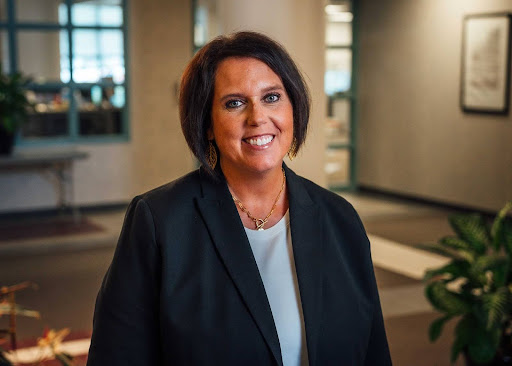Guest Opinion: Mentoring — building a network for change

By Mary Sheka | Iowa Mentoring Partnership, Volunteer Iowa
January is a time of fresh starts, and a month when many of us re-evaluate our commitments and where we are placing our energy and time. Mentoring is a positive and fulfilling way to spend an hour each week positively impacting youth in our community. Every young person deserves to have someone to turn to, yet one in three young people are growing up without a mentor.
The Iowa Mentoring Partnership is a proud supporter of National Mentoring Month each January. As part of a continued effort to focus national attention on the need for mentors, and how each of us — individuals, businesses, government agencies, schools, faith communities and nonprofits — can work together to increase the number of mentors to assure positive outcomes for America’s young people, National Mentoring Month celebrates mentoring and the positive effects it can have on the lives of young people. Throughout the month, local mentoring programs in communities across the state will be celebrating the success of their programs and asking more community members to step forward to make a difference in the life of a young person.
Mentoring helps young people succeed, especially those youth at risk of becoming disconnected from work, school and the community. Through consistent guidance, support and encouragement, mentors help young people set goals and achieve them. When done well, the stability and security of a mentoring relationship can be the very thing a young person needs most. It’s a gateway to the kind of skill development, goal setting and belief in one’s self that leads to a fulfilling future.
A report released by Mentor and informed by the first nationally representative survey of young people on the topic of mentoring, the Mentoring Effect, looked deeper into this topic and found that mentored youth set higher educational goals and are 55 percent more likely to attend college than those without a mentor. These positive outcomes are especially critical as we confront the millions of young people between the ages of 16 and 24 who are currently neither in school nor employed.
These young people are more likely to participate in extracurricular activities and hold leadership positions, and often possess higher levels of confidence necessary to succeed in school or at work.
With an increasing number of youth growing up under the stress of financial insecurity, with incarcerated parents, and in transience, mentoring has the potential to improve the social and economic opportunity of millions of kids if we have the public and political will to insist on it, and make the necessary investments of time and money. We cannot leave this powerful asset to chance.
Each of us stands on the shoulders of mentors who helped us get to where we are today. There is no better way to repay that debt of gratitude than by mentoring a youth to reach their fullest potential. I encourage each of you to find out more about how you can get involved with youth mentoring atiowamentoring.org.
Contact Mary Sheka via email at mary.sheka@iowaeda.com.










